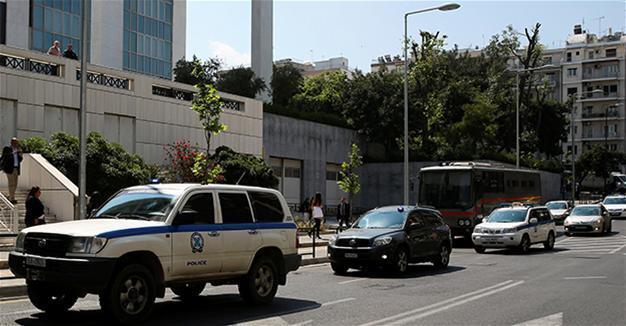Greece rules against extradition of three more Turkish coup soldiers
ATHENS

REUTERS photo
A Greek appeals court on May 3 rejected the extradition of three more Turkish soldiers out of eight who requested asylum in the country after the July 2016 failed coup attempt, state-run Anadolu Agency has reported.It is the second such decision by the appeals court in Athens, with the extradition of six of the soldiers having been rejected.
Three soldiers identified as Ahmet Güzel, Gencay Böyük and Bilal Kurugül pleaded not guilty during their hearing at the Athens Appeals Court on May 3.
Prosecutor Evgenia Kivelou said the accusations by Ankara directed at the former soldiers were not different from the previous ones and demanded the refusal of their extradition.
The prosecutor also argued there was a possibility the men would not get a fair trial in Turkey.
The court board later ordered the rejection of their extradition and said there is also no harm in releasing the soldiers upon the discretion of administrative institutions.
The case of the remaining two is pending.
On April 25, the appeals court had rejected the extradition of three of the servicemen identified as Süleyman Özkaynakçı, Feridun Çoban, and Abdullah Yetik.
Prosecutor Ourania Stathea said the new evidence presented by Ankara was not conclusive and demanded the refusal of their extradition.
Hours after the attempted takeover that resulted in 249 deaths last year, for which Ankara blames what it calls the Fethullahist Terrorist Organization (FETÖ) under U.S.-based Islamic preacher Fethullah Gülen, Turkish military officials, including three majors, three captains and two sergeant-majors, fled to Greece’s Alexandroupoli on a Black Hawk army helicopter. The aircraft was returned the next day but the soldiers immediately requested asylum and stayed.
Greece’s Supreme Court on Jan. 26 rejected Ankara’s extradition request, stating that the eight men would not get a fair trial in Turkey and that their lives would be at risk if they returned.
The decision triggered immediate anger from Ankara, which issued another request the next day.
















